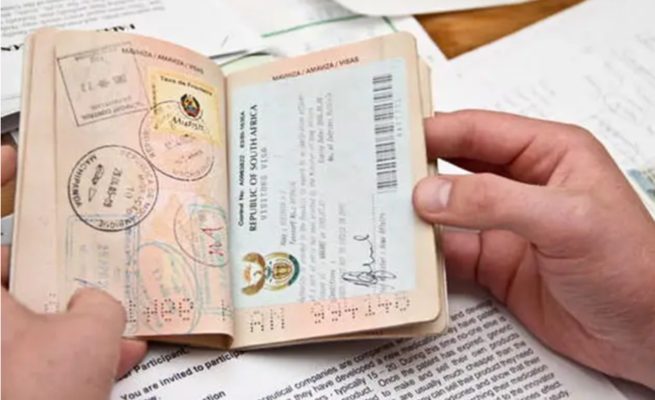ZEP withdrawal discriminatory and inhumane: UJ

New research has indicated that the biggest challenge in documenting immigrants is procedure, which increasingly excludes people who are considered ‘not useful’ to the South African economy.
The centre of sociological research and practice at the University of Johannesburg conducted the research and reports that the cancellation and certain restrictions placed on Zimbabwe Exemption Permits (ZEP) are discriminatory and delves on the repercussions of the dislocation of Zimbabwean nationals to society.
The research is premised on the Pretoria High Court ruling in June, which declared the Minster of Home Affairs Aaron Motsoaledi’s decision to terminate ZEPs unconstitutional and invalid. He is currently counteracting by applying for leave to appeal the high court’s decision.
“The people we interviewed emphasised that ZEP holders have built their lives in South Africa. Many have nothing to go back to in Zimbabwe. Many have started families here, sometimes with South Africans. Children of ZEP holders will be harshly affected as their visas depend on their parents’ permits,” reads the report.
“Over 178 000 Zimbabweans in South Africa have the special permit allowing them to live and work in the country.”
One participant commented that: “Even if they are sending [us] back home, I don’t know what they expect us to survive on. Already people there are struggling, so if we go back home then they are just saying [they] don’t care about whatever is going to happen to you, people.”
According to the report, the ZEP was created for those escaping political and economical difficulties in Zimbabwe. However, these conditions have not come to an end, yet the government is planning to cancel it.
In December 2021, Home Affairs discontinued the ZEP and set a deadline of 31 December 2022 for valid ZEPs holders to switch to another South African immigration category. It extended the deadline until 30 June 2023 and again until 31 December 2023.
“I have two kids, aged 15 and 13, in South Africa. I have nothing in Zimbabwe. So, the reason why these permits were given in the first place – must still be implemented. Because the very same reasons are still exist, the economic situation is still the same, nothing has changed.
“People are still flocking into South Africa, if anything – they should be making more people apply for these permits,” said one of the ZEP holders.
Tedious process of applying for permits and Visas
The research further reveals that apart from the nature of the restrictions being discriminatory, the actual process of applying for permits and alternate visas has become increasingly costly and requires time-bound documentation, which are difficult to coordinate and expensive.
“Online application has reduced queuing, but has also introduced extra expense and difficulties for those with connectivity problems. It is, therefore, becoming increasingly difficult for some people to formalise themselves.
“This exposes the hypocrisy of government: it rails against undocumented migration but makes it difficult for people to document themselves. Additionally, Zimbabweans were forced to abandon asylum permits and applications when the permits came in, meaning that people who came here seeking asylum are now in limbo.”
Another person interviewed on the experience of applying for permits, she said: “There are a few who do qualify for the other visa categories. I don’t know how the waiver thing works. But I just heard that even those with non-critical skills can try the waiver route but I don’t know how it works. And I am sure it also has its own challenges. But with most people, it is now just panic; not knowing what tomorrow will hold, oh…”
‘Counter the narrative that migrants are a burden’
The report also said it is necessary to counter the narrative that international migrants are a burden by noting the social and economic value they bring.
“Either way, dislocating ZEP holders will negatively affect South Africans too. For example, local producer sand retailers will lose revenue if there are fewer people buying goods in South Africa to send back to Zimbabwe, and that could affect jobs. There’s also rental income that will be lost,” the report read.
“We would lose a great many friends, neighbours and spouses, face diminished variety and shrinking horizons, and diminish the value of life. Migration enriches everyone, far beyond cold economic benefits.
“But the official South African approach to international migration seems increasingly utilitarian and decreasingly about people, increasingly focused on manipulating the labour force and ‘surplus population’,” reads the report. — CityPress




